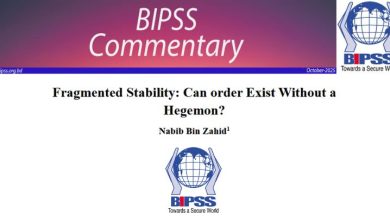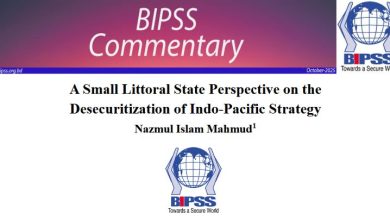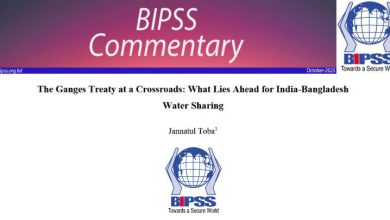
Resilience Diplomacy: Building Security Through Psychological and Cultural Strength
In an era marked by hybrid threats, ideological polarization, and disinformation warfare, traditional military-centric security frameworks fall short in safeguarding nations. Modern threats ranging from psychological operations to cultural erasure target the minds, identities, and morale of populations rather than borders. This has given rise to a new paradigm: resilience diplomacy. It centers on fortifying a nation’s psychological strength and cultural cohesion to resist external manipulation and maintain internal stability. From media literacy campaigns to cultural diplomacy and inclusive national narratives, countries are now embracing soft power tools not only for survival but also to shape global perceptions and influence.
BIPSS Research Assistant Saraf Wasima argued in this commentary that to confront these emerging challenges, nations must embed resilience diplomacy into their national security strategies with the same seriousness as conventional defense. This means institutionalizing mental health and civic education reforms, mainstreaming cultural diplomacy in foreign missions, and investing in inclusive national narratives that reflect all segments of society. Countries should establish National Resilience Councils to coordinate cross-sectoral efforts and partner with international bodies like UNESCO and WHO to share best practices. In a world where wars are often waged through symbols, words, and misinformation, strengthening psychological and cultural resilience is not a luxury it is a strategic imperative for securing national identity, unity, and global standing.



